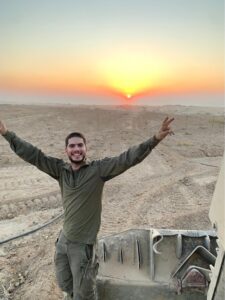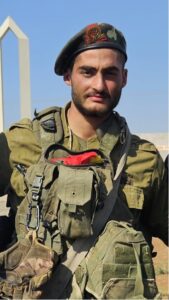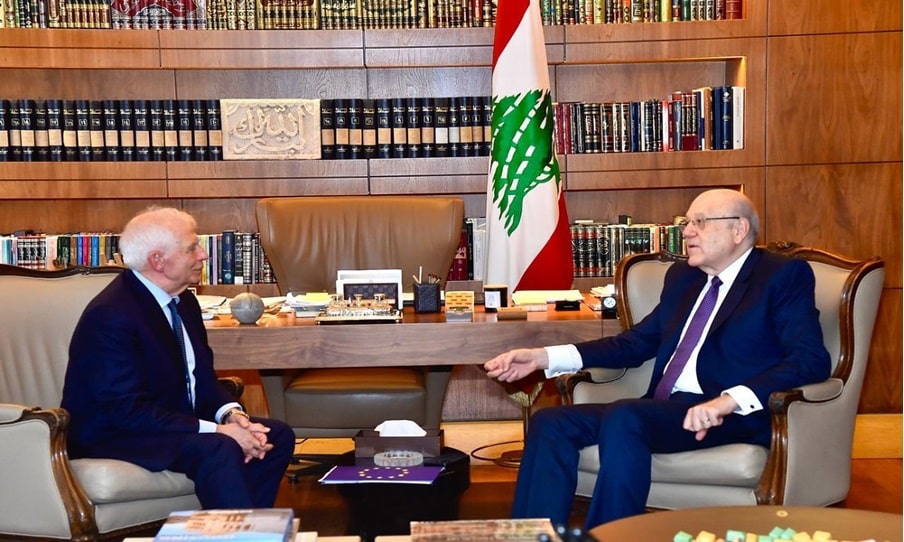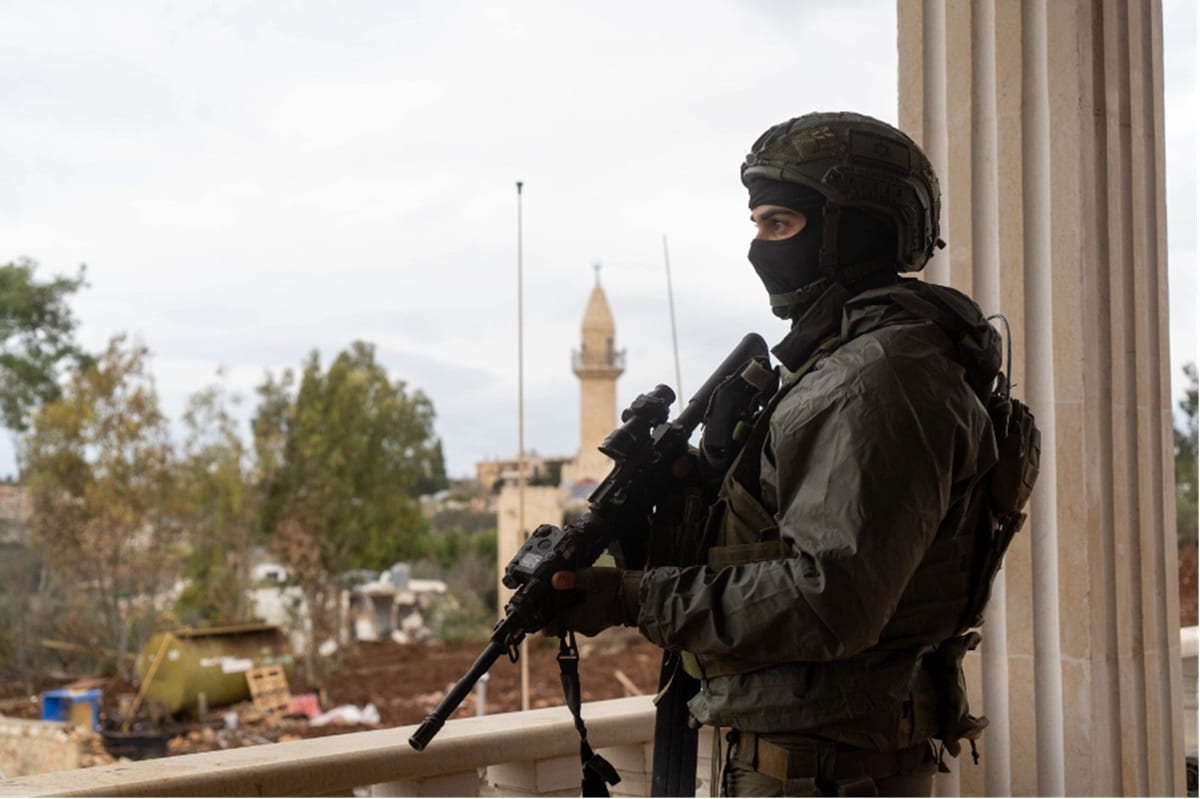
Overview
- The Israeli Security Cabinet, in a 10-1 vote, approved a U.S.-brokered ceasefire proposal.
- Advisor to Iran’s Supreme Leader Ali Larijani stated that Iran would continue supporting Hezbollah and Lebanon.
- Mahmoud Qomati, Deputy Chairman of Hezbollah’s Political Council, stated that Hezbollah has had full coordination and cooperation with the Lebanese Army at the highest levels since its establishment and noted current cooperation between Hezbollah, the Lebanese Army, and UNIFIL in southern Lebanon.
- France altered its stance on the enforcement of the ICC arrest warrants against Netanyahu and Gallant by announcing that it would not enforce the warrants.
- The Air Force bombed bridges along the Syria-Lebanon border to prevent smuggling by Hezbollah’s Unit 4400, which has been smuggling weapons into Lebanon since 2000.
- The IDF spokesperson in Arabic reiterated warnings to Lebanese residents to avoid entering demilitarized zones despite the fact that many have returned to the villages.
- COGAT and the IDF have released videos of the trucks of aid waiting on the Gazan side of the Kerem Shalom crossing.
- Joint IDF and Shin Bet operation thwarted a significant Iranian arms smuggling attempt. The weapons destined for terrorists in Jenin and would have been a balance altering development for counter terrorism operations by the IDF.
- On November 27, the “Syrian National Army” in Idlib, consisting of multiple militias led by Tahrir al-Sham and its leader Abu Mohammad al-Jolani, launched a massive surprise attack against positions held by the Assad regime. They captured major cities and the campaign is ongoing.
- Following criticism from France, Germany, and the UK regarding non-cooperation with the IAEA, Iran announced plans to install advanced centrifuges to accelerate its nuclear program including the installation of 6,000 new centrifuges to accelerate uranium enrichment.
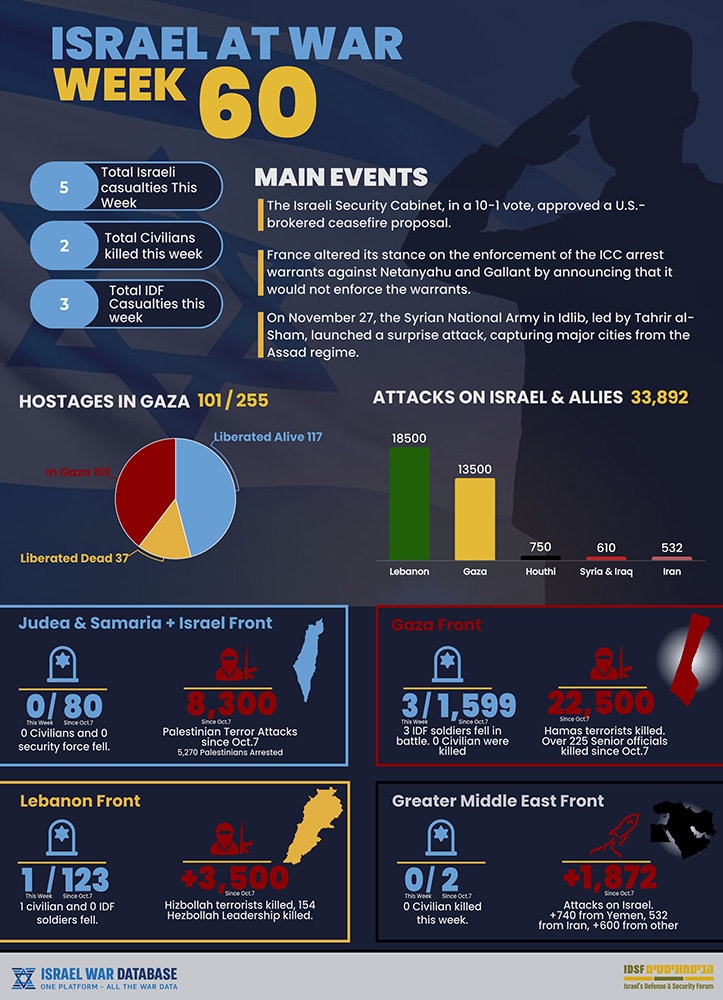
International
- Defense Minister Israel Katz held his first conversation with UK Defense Secretary John Healy. Katz emphasized that Israel’s top priority is the return of hostages. He urged Britain to oppose any ceasefire proposal not conditional on hostage release.
- France, Germany, and the UK issued a joint statement calling for extending Israeli-Palestinian banking arrangements to avoid economic collapse of the Palestinian economy.
- France altered its stance on the enforcement of the ICC arrest warrants against Netanyahu and Gallant by announcing that it would not enforce the warrants. It seems that France altered their position to gain Israel’s support in participating in monitoring the Israel-Hezbollah ceasefire.
Lebanon
Diplomatic
Ceasefire Agreements
- The Israeli Security Cabinet, in a 10-1 vote, approved a U.S.-brokered ceasefire proposal.
- Key provisions of the agreement:
- Israel will withdraw from southern Lebanon within 60 days.
- The Lebanese Army, alongside UNIFIL forces, will take control of every village and position vacated by the IDF.
- The agreement mandates the implementation of UN Resolution 1701, which requires securing and controlling border crossings with Syria.
- Israel retains the right to directly address direct threats. For indirect threats, such as new terror infrastructure, Israel must first notify the Lebanese Army or UNIFIL. If they fail to act, Israel reserves the right to respond.
International Oversight of the Ceasefire
- U.S. Central Command (CENTCOM) announced that General Jasper Jeffers, the Commander of CENTCOM Special Operations, arrived in Beirut three days ago and will serve as the military chairman of the ceasefire monitoring mechanism in Lebanon.
- Special Presidential Coordinator, Amos Hochstein, will serve as the civilian chairman alongside Jeffers until a permanent civilian leader is appointed.
- The monitoring mechanism will be managed by the United States and will include representatives from the Lebanese Army, IDF, UNIFIL, and France.
Prime Minister Netanyahu’s Highlighted three key reasons for accepting the ceasefire:
-
- Focusing on the Iranian threat.
- Allowing for the replenishment of forces and munitions.
- Redirecting attention to the Gaza Strip, where Hamas remains isolated.
Netanyahu emphasized that Israel retains full freedom of action to respond to any violations or rearmament by Hezbollah.
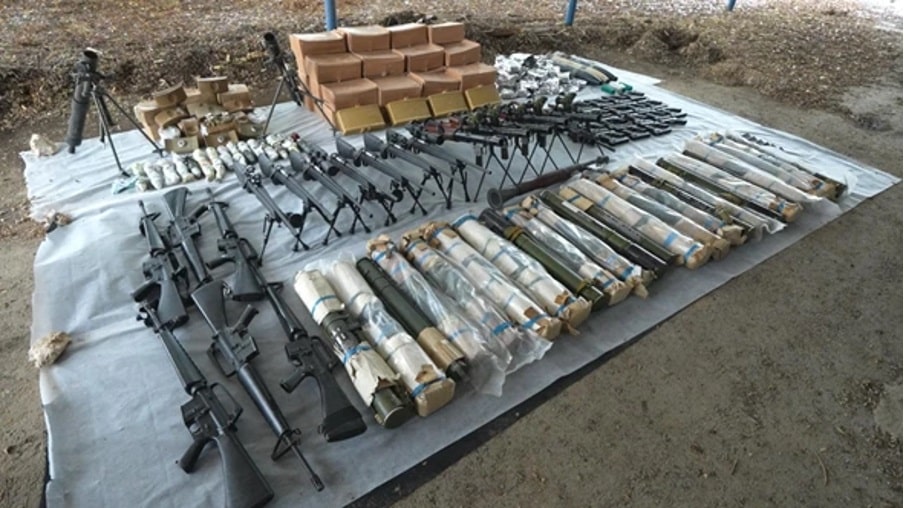
It is important to remember that while the cease-fire allows Israel to act in Lebanon when Hezbollah violates it, it does not guarantee that the Lebanese Army will actively disarm the group as Hezbollah is entrenched in the Lebanese military and has burrowed itself as part of the Lebanese State. The Lebanese Armed forces have collaborated with Hezbollah and do not pose a viable threat to Hezbollah’s strength. Hezbollah’s stronghold in the Beqaa Valley and its potential for reorganization with Iranian support is still a threat that exists. The same issues that plagued the 1701 agreement in 2006 remain in this deal.
This deal was reached with significant American and French pressure. Amos Hochstein, threatened to leave his post as the Special Presidential Coordinator for Lebanon if an agreement is not reached. The expiration of the agreement in 60 days coincides with the change of US Presidency which indicates that Israel views the incoming Trump Administation may have a more favorable approach Israeli concerns with Hezbollah.
Hezbollah’s Response to the Agreement
- Mahmoud Qomati, Deputy Chairman of Hezbollah’s Political Council, expressed pessimism about the prospects of the negotiations, accusing the United States of being an unfair mediator and participating in “aggression.” He stated that Hezbollah has had full coordination and cooperation with the Lebanese Army at the highest levels since its establishment and noted current cooperation between Hezbollah, the Lebanese Army, and UNIFIL in southern Lebanon. His statement is a clear demonstration of why Israel does not trust international forces such UNIFIL as peacekeepers.
- In a recent speech, Hezbollah Secretary-General Naim Qassem addressed the ceasefire agreement, stating that the organization had submitted its comments on the American proposal, emphasizing the necessity to safeguard Lebanon’s sovereignty against Israel. He affirmed Hezbollah’s commitment to the ceasefire, provided it does not compromise Lebanon’s territorial integrity.
- He also indicated that Hezbollah does not oppose strengthening the Lebanese Army or expanding its operations in southern Lebanon.
Hezbollah’s Propaganda
- Pro-Hezbollah media outlets are celebrating the ceasefire agreement as a “victory for the resistance.”
- Images of Shiite residents returning to southern Lebanon are being used in propaganda campaigns, alongside photos of Hezbollah leader Hassan Nasrallah and flags of Hezbollah and Amal.
- The narrative promoted is that Hezbollah “drove the IDF out of Lebanon,” reminiscent of Israel’s withdrawal from Lebanon in 2000.
Operational
- The IDF concluded its ground maneuver in Lebanon. Units from the 91st Division, the Alexandroni Task Force, Sayeret Golani, and Shaldag Unit will take part in the enforcement of the agreement. In the past week they discovered terror infrastructure above and below ground in the Litani area.
- They destroyed hundreds of long-range rockets, multi-barrel rocket launchers, and entire weapon depots which had been prepared to attack on northern Israel.
- On Tuesday, the Israeli Air Force carried out a record 180 airstrikes across Lebanon:
In Beirut, eight fighter jets targeted 20 sites in 120 seconds, including financial facilities storing Hezbollah funds (such as Al-Qard al-Hassan’s banks). Targets in Sidon, Tyre, and the Beqaa Valley included Hezbollah’s cash depots and artillery warehouses, significantly undermining the organization’s financial and operational capabilities. Videos surfaced of banknotes scattering in the streets after the strikes, with civilians rushing to collect the money.
- Hezbollah’s Air Unit (Unit 127) suffered severe blows: 200 of its targets have been hit since September, including 30 headquarters and 4 production workshops. 70% of its drones and 30% of its cruise missiles were destroyed. The unit’s operations chief was killed in Beirut.
Targeted Strikes to Prevent Smuggling
The Air Force bombed bridges along the Syria-Lebanon border to prevent smuggling by Hezbollah’s Unit 4400, which has been smuggling weapons into Lebanon since 2000. Released intelligence detailed the smuggling routes from Iran through Syria into Lebanon:
- Thousands of trucks and hundreds of aircraft were used with Assad’s direct assistance, including storage and free passage facilitated by Syrian security forces.
- The IDF detailed its efforts against years long Hezbollah arms smuggling unit by detailing a strike against a tunnel in early October. A 3.5 km tunnel from Homs to Lebanon, built from 2009 to 2019 which was utilized by Hezbollah’s Unit 4400 to smuggle Iranian weapons into Lebanon, was targeted in at least 10 significant airstrikes in the past two months. Despite reports suggesting the tunnel ceased operations in 2019, the IDF targeted it due to concerns that it remained a viable conduit for arms smuggling. The tunnel’s strategic location and infrastructure could have facilitated renewed smuggling activities.
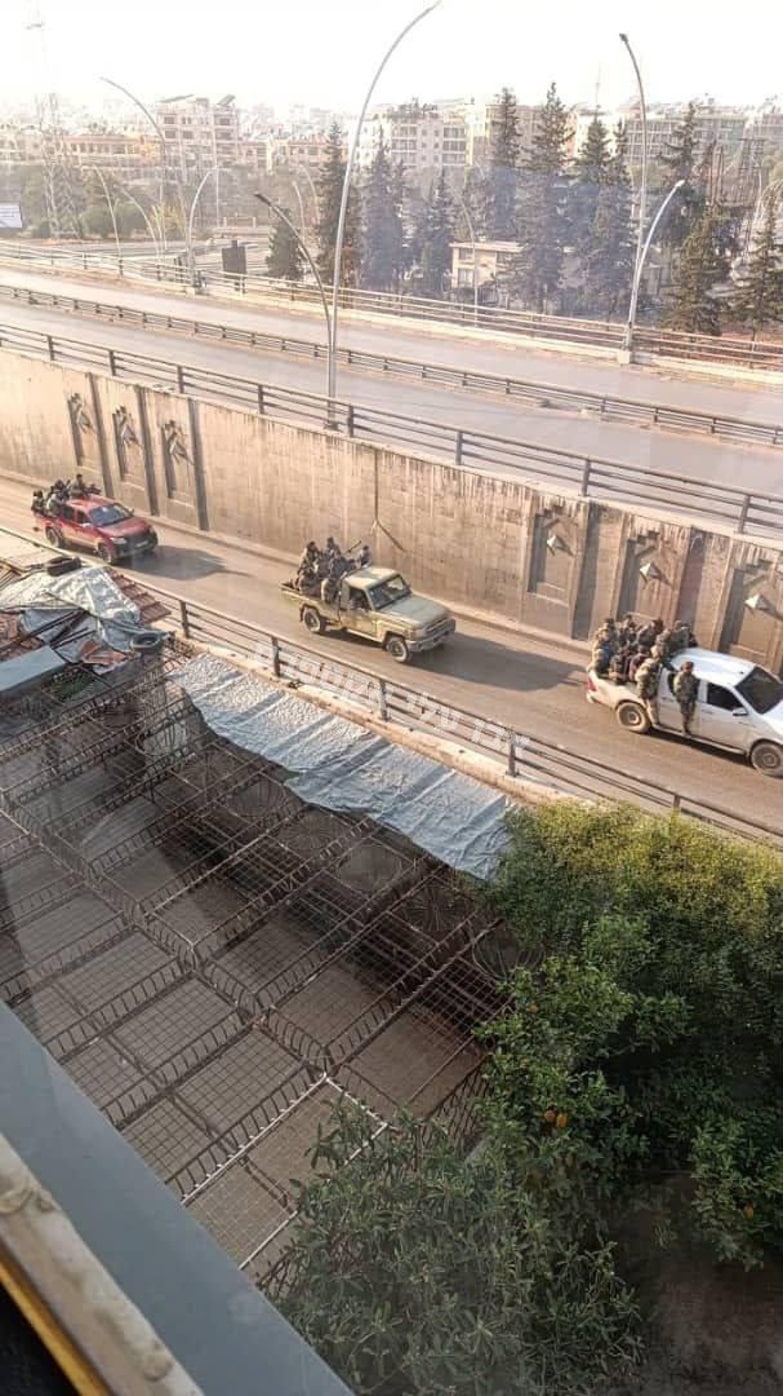
On Monday, before the ceasefire went into effect, the Air Force escalated its attacks:
- Strikes targeted Hezbollah’s Executive Council facilities in Beirut, Dahieh, Nabatieh, Baalbek, and the Beqaa Valley.
- Command-and-control centers were targeted to disrupt Hezbollah’s operational capabilities and intelligence gathering.
- Additional strikes targeted Hezbollah’s coastal missile unit, communications headquarters, and two military command posts.
Hezbollah’s Largest Rocket Barrage
- On Sunday, Hezbollah carried out 79 attacks against Israel, the highest daily number since the start of the war.
- Over 240 rockets and missiles were launched toward northern Israel, with an additional five barrages targeting central Israel:
- Rockets hit areas including Metula, Safed, Rosh Pina, Kiryat Shmona, Acre, Nahariya, Haifa, and Petah Tikva.
- Drones were also launched under cloud cover, complicating Israeli drone operations.
- In Petah Tikva, multiple vehicles were set ablaze, and buildings sustained significant damage.
Casualties and Damage:
- Northern Israel experienced significant property damage, including direct hits on homes and vehicles.
- Eight individuals were injured in Haifa, Nahariya, and Petah Tikva due to direct rocket hits.
- In central Israel, barrages resulted in 17 rockets hitting various targets.
Ceasefire Enforcement:
- The IDF is enforcing a no-movement zone within 6 km of the Israel-Lebanon border.
- Artillery fire was used to deter Hezbollah operatives and civilians attempting to return to border villages.
- A nighttime curfew has been imposed, with continuous aerial surveillance and intelligence gathering in the area.
- The IDF spokesperson in Arabic reiterated warnings to Lebanese residents to avoid entering demilitarized zones despite the fact that many have returned to the villages. Many of these returnees are Hezbollah
- Airstrikes destroyed Hezbollah rocket launchers, mid-range rocket storage facilities, and operational sites.
- The IDF summarized the Northern Front. Since the launch of Operation “Northern Arrows” on September 17, IDF strikes have:
- Targeted 12,500 Hezbollah sites, including 360 in Beirut and 1,000 in the Beqaa Valley.
- Eliminated approximately 2,500 Hezbollah operatives, including high-ranking commanders:
- 63 company commanders, 27 battalion commanders, 24 brigade commanders, and 4 divisional commanders.
- Confiscated 155,000 items, including 12,000 explosive devices, drones, and other means, along with 13,000 launchers, anti-tank and anti-aircraft weapons, and rockets.
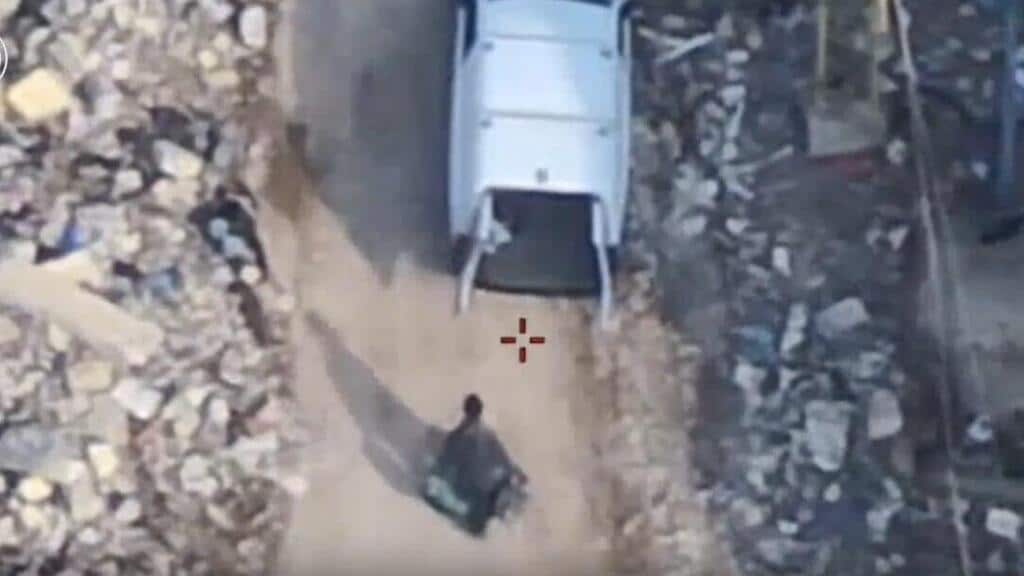
Violations of the Ceasefire by Hezbollah
The IDF reported multiple violations of the recent ceasefire agreement by Hezbollah. These violations include:
- Unauthorized Movements: Hezbollah operatives have been detected entering restricted zones near the Israel-Lebanon border, areas designated as off-limits under the ceasefire terms.
- Reoccupation of Military Positions: Hezbollah members have reportedly returned to sites in southern Lebanon previously used for launching attacks against Israel, contravening the agreement’s stipulations.
- Reactivation of Rocket Storage Facilities: The IDF identified activity within Hezbollah facilities used to store medium-range rockets, leading to Israeli airstrikes targeting these sites in response to the ceasefire breaches.
The IDF carried strikes against Hezbollah operatives in these areas, enforcing the ceasefire agreement.
Gaza Strip
- Mass demonstrations took place worldwide on the International Day of Solidarity with the Palestinian People, focusing on shopping centers and malls during Black Friday sales—more shoppers, more potential for spreading propaganda in malls. Under the slogan: “While you’re shopping, bombs keep dropping.”
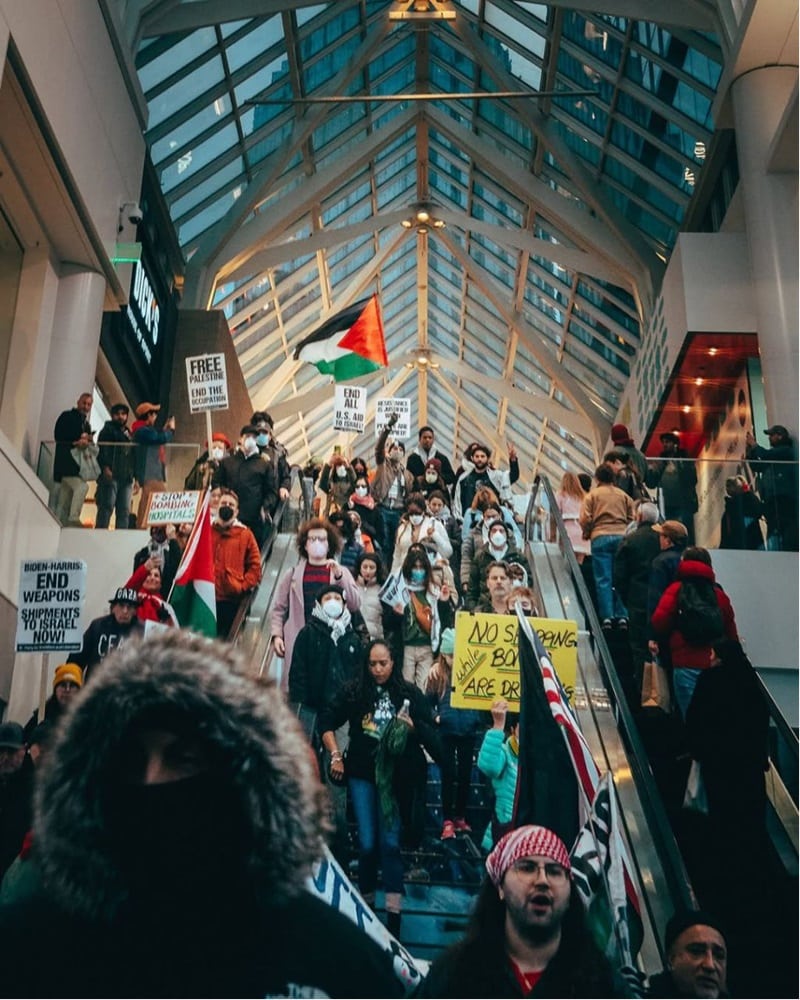
Hostage Deal
- Hamas expressed its willingness to cooperate with efforts for a ceasefire in Gaza. Senior Hamas official Sami Abu Zuhri stated to Reuters that Hamas “respects Lebanon’s right to reach a ceasefire agreement that protects its residents.” Hamas hopes for a similar agreement to end the war in Gaza.
- Senior Hamas official Osama Hamdan warned that if contact is lost with the Hamas terrorists holding Israeli hostages or if they are killed, the hostages’ lives will be in danger. He accused Israel of trying to achieve in negotiations what it couldn’t achieve militarily, insisting that Hamas will not allow this.
- A temporary ceasefire of five days which has been offered was rejected by Hamas.
- According to the New York Times officials believe that Hamas would be flexible for a temporary Israeli presence on the Philadelphi corridor as part of hostage deal. This claim has yet to be substantiated.
- Israel approached Turkey, indicating openness for Turkey’s involvement in mediating a hostage deal in Gaza: Shin Bet chief Ronen Bar recently visited Turkey secretly, urging Turkish pressure on Hamas leaders, many of whom recently moved from Qatar to Istanbul.
- Lebanon’s pro-Hezbollah newspaper Al-Akhbarreported that Egypt proposed a “comprehensive vision” for a ceasefire: A temporary ceasefire of one to two months to finalize “post-war” arrangements. Gradual release of hostages, prioritizing elderly and chronically ill individuals.
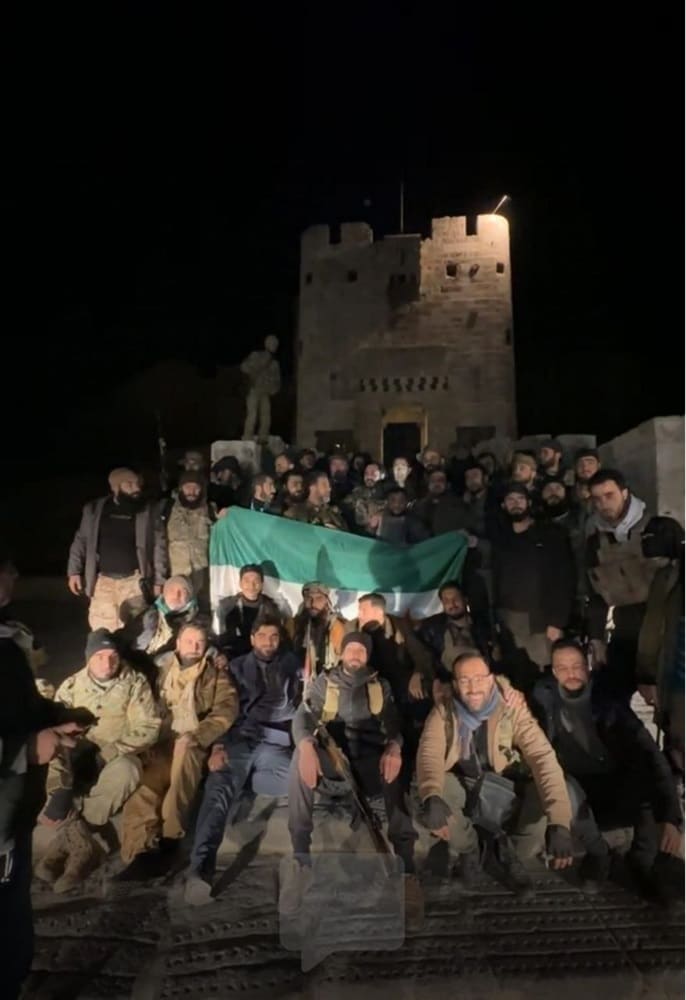
Operational
- The third battle of Jabalya has entered its third month. So far, 1,500 militants have been eliminated, and 1,200 have been captured. Prisoners are providing critical intelligence on tunnels and terror infrastructure.
- The elite Givati Brigade raided a central school in Jabalya, eliminating 40 militants in a 3-hour battle while capturing 100 others.
- Operation efficiency has improved: initially requiring a division, then a brigade, and now just one battalion. With continued anti-terror success, future operations might only require a company.
Humanitarian Aid
- Dozens of aid trucks enter daily via the Erez Crossing.
- Jordanian Air Force delivered humanitarian assistance to the northern Gaza Strip.
- 75,000 residents have been evacuated southward from northern Gaza.
- Despite the entry of humanitarian aid trucks, the food crisis in Gaza persists. In addition to Hamas stealing food supplies, powerful clans and gangs are forcefully seizing flour intended for distribution and baked goods from bakeries, reselling them at inflated prices. Protests against the flour distribution system erupted in Deir al-Balah. Meanwhile, COGAT and the IDF have released videos of the trucks of aid waiting on the Gazan side of the Kerem Shalom crossing.
Jordan
- Joint IDF and Shin Bet operation thwarted a significant Iranian arms smuggling attempt. The weapons destined for terrorists in Jenin included:
- 40 high-quality explosive devices some equipped with remote detonation systems, 6 RPG-7 launchers, 24 RPG rockets, 7 sniper rifles, mortars, high-power explosive devices (some with remote activation systems), bombs, mortar launchers and more. If they were successfully transferred, the weapons could have severely impacted the balance of power in the Jenin area impeding IDF counter terrorist operational abilities. Large portions of the shipment were hidden in a concealed location. The shipment was orchestrated by Iran’s IRGC Intelligence Organization, specifically its Special Operations Division (Unit 4000), led by Javad Ghafari, and Unit 18840, a special operations wing of the Quds Force in Syria, commanded by Asghar Bagheri.
- Two Israeli Arabs were arrested in Lod for smuggling 20,000 bullets to terror organizations in Judea and Samaria.
- In another case, an Israeli-Arab woman was arrested for smuggling 6,000 rounds of 5.56mm ammunition. She was suspected of being part of an Israeli-Arab smuggling network supplying arms to the region.
- An arms smuggling operation was thwarted near the Adam Bridge in the Jordan Valley: Suspects were caught with two bags containing 14 handguns and 65 weapon parts.
- Defense Minister Israel Katz approved the engineering plans for the construction of a security fence along the border with Jordan. No construction start date has been announced.
- In Amman, Jordan, an armed individual opened fire on police officers near the Israeli Embassy: Three officers were injured before the attacker was killed by Jordanian police.
- Jordan’s Border Police foiled a drug smuggling attempt along the Syrian border: One smuggler was killed, and six others were detained. Smuggling routes for drugs often overlap with Iranian arms smuggling routes into the Judea and Samaria.
Domestic
- The Israeli government is expected to approve an expansion of the reserve forces to 320,000 personnel by March 2025 to meet wartime objectives.
Egypt
- On the Egypt-Israel border, an attempted arms smuggling ring was thwarted, a drone carrying weapons was downed by the IDF.
Judea and Samaria
- The Secretary-General of the PLO Executive Committee, Hussein al-Sheikh, met with Qatar’s Prime Minister Mohammed bin Abdulrahman Al-Thani in Doha to discuss the Palestinian arena and regional developments.
- Palestinian President Mahmoud Abbas announced that if he dies, National Council Chairman Rawhi Fattouh will assume his position for 90 days until elections are held.
- At Gitai Avisar Junction near Ariel, a Hamas terrorist armed with an M-16 opened fire on a bus. The attacker was neutralized but managed to wound nine people, three critically.
Counterterrorism Operations
- IDF arrested 20 suspects last week, including 10 in Tubas and its nearby refugee camp.
- IDF Confiscated 20 weapons and seized tens of thousands of shekels in terror-related funds.
Iraq and Syria
Syrian Civil War Developments
On November 27, the “Syrian National Army” in Idlib, consisting of multiple militias led by Tahrir al-Sham and its leader Abu Mohammad al-Jolani, launched a massive surprise attack against positions held by the Assad regime. The offensive was spearheaded by the Salafist militia, which is affiliated with al-Qaeda.
They entered western Aleppo, capturing the governor’s palace, police station, and prison, freeing prisoners. They captured Saraqib and the villages northward to Aleppo, securing the M5 highway which is a critical junction for logistical support and the primary supply route to Aleppo, and executed another blockade in the Saraqib area. Encirclement attempts are underway, targeting Aleppo’s airport and Abu al-Duhur airbase.
- The Syrian rebels reportedly killed senior Iranian military advisor Kioumars Pourhashimi and other high-ranking military figures.
- The rebels have taken significant spoils, including tanks, missile caches, and captured numerous soldiers and Hezbollah operatives.
- Reports indicate a total collapse of Assad’s forces in Aleppo, with senior officers and soldiers fleeing the city with declining morale among the troops.
- The SDF (Syrian Democratic Forces), supported by the U.S., began deploying in key positions to protect Kurdish populations as rebel forces advanced. They assumed responsibility for Aleppo airport and secured areas in Sheikh Maqsoud, Tel Hasel, and Tel Aran.
- Turkish President Erdogan emphasized that a secure northern Syria would expedite the return of Syrian refugees.
The assumption that Assad’s regime was stable due to Russian and Iranian support is now being challenged. The weakening of Hezbollah has opened opportunities for regional powers like Turkey and local Kurdish groups to reshape the Syrian theater. Turkey, among other regional actors, is benefitting from the new opportunities in Syria which would allow it to project power in Syria as Russia and Iran’s flailing proxies are weakening in Syria.
Strategic Implications
Israeli cabinet convened to discuss potential ramifications:
- Iranian arms transfers and Hezbollah reinforcements to Syria could impact the Israeli-Lebanese border.
- Discussions likely included the status of Iranian munitions factories in Aleppo and the potential risks if they fall into rebel hands.
- Israeli Strikes targeted weapons smuggling routes into Lebanon from Homs.
- A significant missile production facility, built with Iranian cooperation over a decade, was destroyed.
This development showcases that Iran and Hezbollah are on their heels. As Hezbollah is attenuated the rebels used it to advance against the Assad regime, has many operatives that are allied with Hezbollah and the Iranian axis.
Demonstrations supporting the rebels in Idlib occurred in Daraa and As-Suwayda in southern Syria and in Tripoli in northern Lebanon. Hezbollah fought against the forces in these areas in the past.
- Iraqi Shiite militias promise to continue UAV attacks against Israel.
- Kata’ib Hezbollah pledged ongoing support for Gaza and hinted at new allies joining their campaign.
- The leader of Iraq’s Harakat Hezbollah al-Nujaba militia declared that Iran plans to launch a stronger attack on Israel than in previous conflicts.
Iran
Reactions to Lebanon Ceasefire Agreement
- Advisor to Iran’s Supreme Leader Ali Larijani stated that Iran would continue supporting Hezbollah and Lebanon. He emphasized Iran’s readiness to assist Hezbollah’s reconstruction after the war, provided it remains a political force in Lebanon
- Ali Larijani, stated that Hezbollah continues to maintain significant military capabilities, including producing its own missiles. He emphasized that removing Hezbollah from Lebanon’s political equation is not an option.
- Iranian commander Hussein Salami declared that the ceasefire between Israel and Hezbollah signifies a strategic failure for Israel, as it did not achieve its objectives against Hezbollah.
Nuclear Proliferation
- Iranian parliamentary speaker Mohammad Bagher Ghalibaf confirmed the activation of advanced centrifuges in Natanz and Fordow.
- Iranian Foreign Minister Abbas Araqchi warned in an interview with The Guardianthat Iran could develop nuclear weapons if European nations reimpose sanctions.
- Ali Larijani rejected the Vienna decision and declared that Iran would not submit reports to the IAEA (The International Atomic Energy Agency).
- Following criticism from France, Germany, and the UK regarding non-cooperation with the IAEA, Iran announced plans to install advanced centrifuges to accelerate its nuclear program including the installation of 6,000 new centrifuges to accelerate uranium enrichment.
- Deputy Minister for Legal and International Affairs, Kazem Gharibabadi, called on the UN Security Council to impose sanctions on Israel for alleged use of prohibited chemical weapons in Gaza and Lebanon.
- Gharibabadi criticized the European Union for its “self-centered and irresponsible behavior” during ongoing nuclear negotiations in Geneva.
Iran’s Response to the Ceasefire
- Iran viewed the ceasefire in Lebanon as a setback for Israel, highlighting Hezbollah’s continued military and political strength. Iran affirmed its long-term commitment to supporting Hezbollah’s reconstruction and operational readiness.
Other
- IDF Chief of Staff Herzi Halevi attended a summit in London with allied military chiefs to coordinate strategies against Iran and its regional proxies.
- Iran’s Chief of Staff, General Bagheri, reiterated that Israel had crossed a “red line” (in reference to Israel’s attack against Iranian air defense systems last month) and would face retaliation at the appropriate time.
Yemen
- Reports from the Financial Times revealed that Russia has recruited hundreds of residents from northern Yemen (Houthi-controlled areas) for “security” and “engineering” roles to support its war in Ukraine.
Global Jihad
- Shin Bet and Israeli police arrested an Israeli citizen, Mohammad Amash, a 24-year-old student from Jisr al-Zarqa, suspected of allegiance to ISIS. He was charged for his involvement in ISIS-inspired security activities.
Fallen Soldiers

